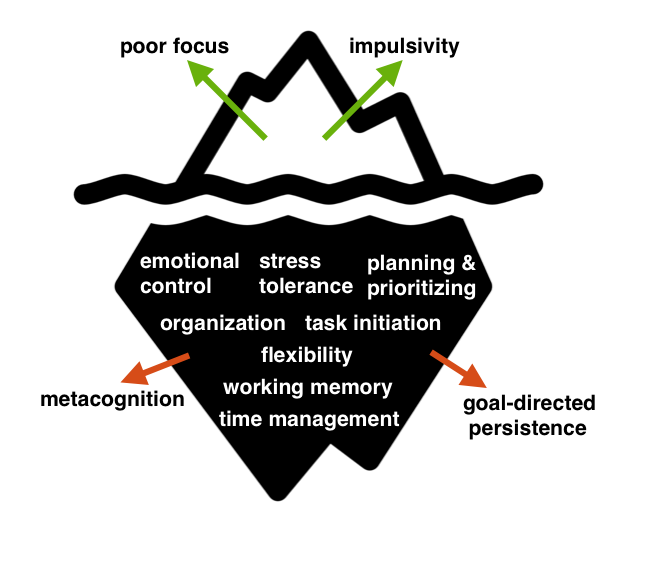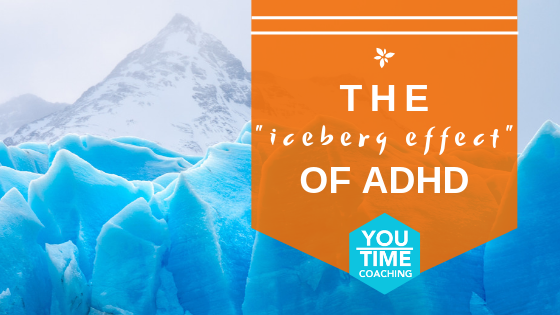If you, a friend, family member, significant other, or even an imaginary friend have ADHD, then you know a couple things to be true.
First, chronic procrastination, disorganization, and poor sleep habits are at the core. Even so, please don’t let this fool you.
Let’s face the truth, there are stigmas, biases, and stereotypes about anyone with ADHD (kids and adults with ADHD have their own “special” stigmas…etc). Looking at someone else’s eight or ten year old kid and saying, “Well, glad thats not my problem.”, “That kid needs to be on meds.”, “Their parents need to really control them better.”…. and you get the point.
ADHD is like an iceberg.
I know you have all heard the analogies about icebergs, and at this point it may be getting old, but for your kid’s sake stick with me because the each iceberg analogy equally deserves its own attention, especially when we are talking about a disorder that effects sustained attention. You can do it. I think you get the point… below the surface can get messy.

Practice: Acknowledge and let go of your assumptions
Assumptions can lead us down some slippery paths, but more importantly it drastically affects our approach to problems and challenges. When we make assumptions, it impacts the experience of everyone involved.
Use your imagination and visualize any tough situation for your kid. Don’t go for the home run on this, simply choose something that brings up moderate levels of emotion. Now just sit there, think about this scenario, and complete a couple exercises.
• Take a second and write down what feelings come up for you (stress, irritation, anger…etc).
• Make a list of the reasons why you believe caused this to happen (laziness, not being motivated…etc).
• Sit down for one minute and breathe. Focus on your lungs expanding on your in breathe and your muscles softening on your out breathe. If your mind drifts to a distraction, bring yourself back to your breathe. Just one minute.
• After your minute of breathing ask yourself, could there be any other reason behind my child’s behavior? Could your child’s intentions behind the behavior be different than you thought?
At the end of the day, you can afford to take a minute and step away from an emotionally charged situation. This time away can help you gain just a little more clarity and open-mindedness, which last time I checked can go a long way to a kid.
*this blog was derived from the amazing book Mindful Parenting for ADHD by Dr. Mark Bertin.

